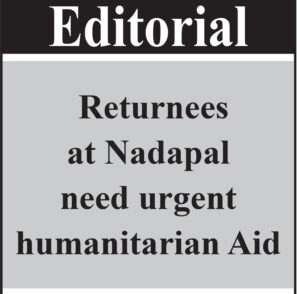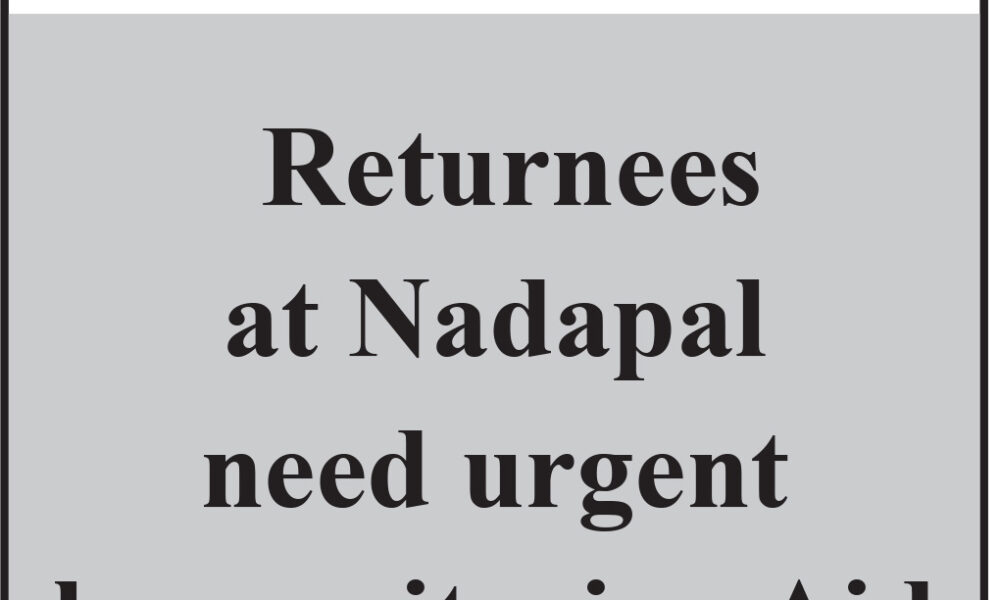
The current humanitarian situation facing South Sudanese returnees stranded at Nadapal on the Kenya–South Sudan border is an emergency that demands immediate coordinated Aid intervention.
The returnees, many of whom fled from Kakuma Refugee Camp due to severe food shortages and ration cuts arrived at the South Sudan-Kenya border with no more than desperation and survival hopes.
The reports from Nadapal paint a harrowing picture: families walking for days, children crying for food and water, and lives lost enroute. Such accounts are not only heartbreaking but a call to conscience. This is not merely a logistical issue; it is a humanitarian crisis.
Eastern Equatoria’s leadership, in particular, has a critical role to play in coordinating with humanitarian agencies and ensuring that returnees are not left to languish in limbo. Together with the national government, they cannot afford to delay in responding.
They should not leave Nadapal as a holding point of hunger, thirst, and despair. They should develop coordinated humanitarian efforts to provide assistance in terms of food, water, medical services, and shelter for the returnees. They should also support the returnees to safely reach their respective home areas.
This crisis underscores the urgent need for a sustainable reintegration program that ensures returnees are not abandoned at borders or left vulnerable to preventable deaths.
South Sudan, already struggling with internal challenges, cannot turn a blind eye to the plight of its own citizens. Returnees are not outsiders; they are compatriots returning home.
The time to act is now.




